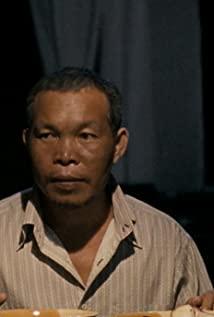The image of ghosts also appears frequently in Chinese films, but it always appears as a terrifying object, and we can never get rid of the kind of stare that comes from it. No matter what it appears in, we all know that there is a real horror lurking behind it. For example, painted skin, there is a grimace under the delicate and beautiful face; and Xiaoqian, even though she is harmless, there is still an evil Montenegrin old demon behind her. Here, Xiaoqian is just a personification of a ghost. , it cannot hide the fact that ghosts are objects of terror. The binary opposition of people and ghosts is the basic narrative ethics of Chinese ghost films.
But in this film, ghosts and savages don't have this kind of terrifying gaze, or specifically to these two "people", this fear is obscured by family affection, ghosts and savages are just another equal form of human beings , they are all included in the community of the family. Ghosts and savages aren't the key to moving the plot forward, they just appear as characters.
The second orgasm came when the costumed woman had sex with catfish in the water. It is an image of self-sacrifice, full of religious overtones. The catfish here acts as that phallic signifier, a pure, separate penis from the male body. This kind of imagination is very oriental, which is the fertility worship of Orientalism, which can be specific to the phallus itself, and no longer needs a personified male god.
The third climax occurs when the group enters the cave, and this active shot is very exciting. As a metaphor for the womb, the cave became the last scene of Uncle Bomy's retrospective life, and even a memory about the army was inserted here. I thought that this political reference would be developed, but I didn't expect it to be a brushstroke, just like other aspects.
The ending is also a small climax, and the out-of-body scene is very imaginative.
The film's narrative isn't very logical, it's basically a collage of chapters. In other words, the director has deliberately weakened the plot, so that we can get rid of the narrative burden and turn our attention to the unique cultural atmosphere of Southeast Asia created by the director. The outcome of the narrative is not the purpose, the process is.
View more about Uncle Boonmee Who Can Recall His Past Lives reviews










